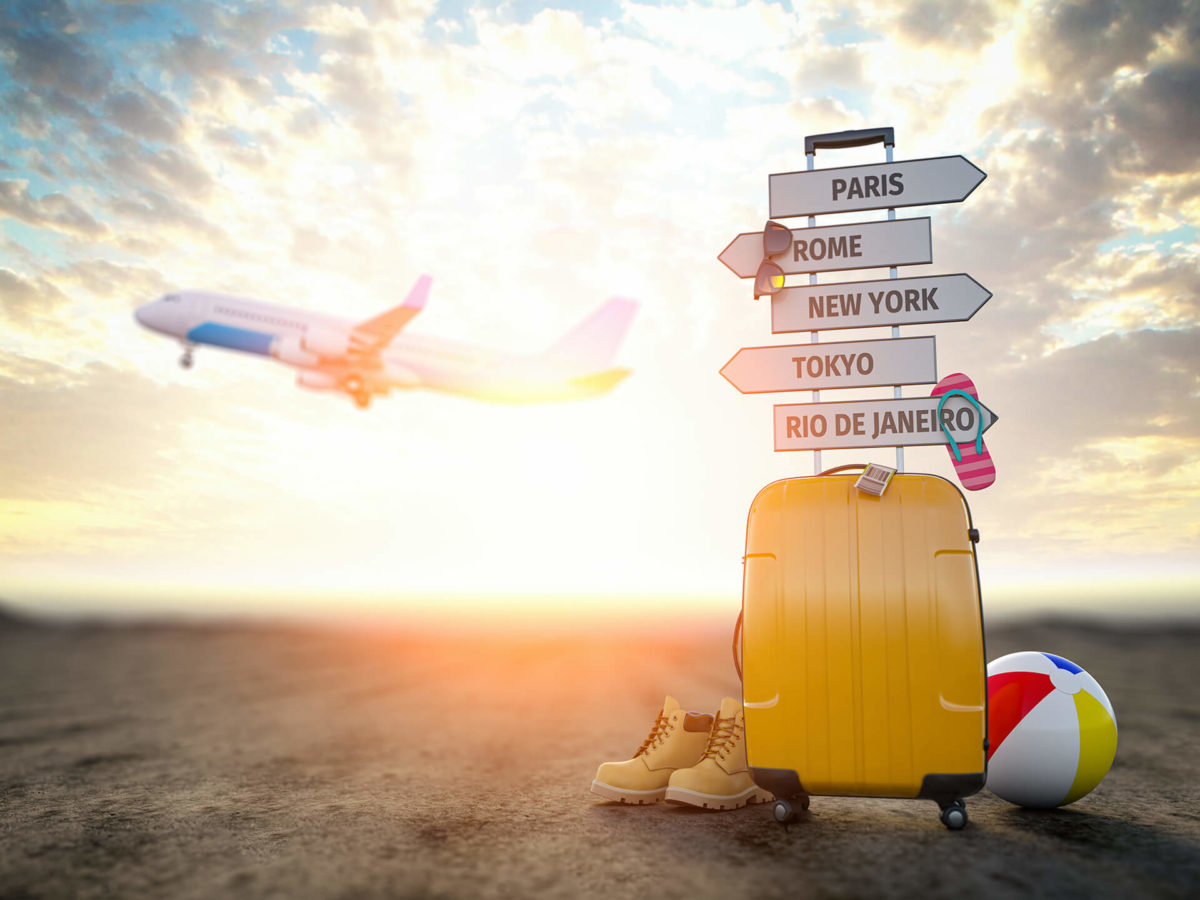Many have heard of the term culture shock only after experiencing the symptoms to a certain degree after deciding to move abroad. Even the best logistics won’t prepare you for leaving the comfort of your home, the people you love, and the support system you’re used to. There’s never a right recipe to get ready for the unknown. Still, there are ways to understand better the emotions you’re experiencing and the ways to cope with them successfully. We’re here to show you how.


Breaking Free From Your Comfort Zone
It’s not that rare that our need to move across the world is based on a poor idea – or a fantasy, maybe – to escape. To move far away from things we know so well that they bore us. From jobs that we love but that aren’t teaching us anything new. From the people we adore, but we’d like to adore some new ones, too. However, we tend to forget that all of these make up our comfort zone, our microsystem where we feel safe and protected.
On the other hand, people usually lose motivation to learn and grow in such surroundings because there’s no stimulus to push them. The result is often the need to break free and step outside of what we know and are used to. What happens next? And is it the same for everyone?


Use This Checklist as a Self-Assessment of Your Feelings
Depending on past experiences and circumstances, the symptoms will vary from person to person. Also, it shouldn’t be a surprise if you experience it at different times from other people. Before we answer the questions: What is culture shock and How does it occur, here are some signs to use to recognize that the rollercoaster you are going through is not just relocation stress but the adjustment process:
- Extensive homesickness and boredom,
- Withdrawal and shyness,
- Insomnia or excessive sleep,
- Lack of appetite or compulsive eating,
- Outbursts of emotions, especially anger,
- Being unable to focus.
We understand that all the effort you already put into thinking about so many details may drain you, like what to pack and which documents are needed to travel abroad. However, your moving abroad checklist doesn’t end with your arrival at the destination.


What Is Culture Shock? Definition and Causes
Planning for such a big move means you’ll likely be overwhelmed with countless tasks and responsibilities for months. Fortunately, you found a reliable international moving company to hire, so they helped you out with the stuff you didn’t know how to handle by yourself. It’s no surprise that you don’t even get to think about how you feel while trying to arrange all the moving services you need, especially professional packing, as well as shipping your car overseas.
But once it all finally came to an end and you started settling in, that’s where it hit you – the work is not done yet. It’s not just about being tired, but the anxiety and the feeling of disorientation are following you wherever you go. And you can’t understand why. If you check your symptoms online, you will surely come across one of the basic and not-so-helpful definitions of what’s going on:
Definition of culture shock
: a sense of confusion and uncertainty, sometimes with feelings of anxiety that may affect people exposed to an alien culture or environment without adequate preparation
However, to gain a deeper understanding and help yourself, you have to dig deeper, too. Learning more about culture shock in sociology and how it affects your mental health is a necessary starting point.
What Are the 5 Stages of Culture Shock?
Even though the process of adjusting to a new country will be entirely different for everyone, there is a common pattern, also known as the U-shaped curve, which describes the phases of hitting emotional peaks. Knowing a bit more about them will give you an understanding of your state of mind:
- The honeymoon phase – The first stage, also known as the fun part of the cultural adjustment process, begins upon your arrival. Being fascinated by all the things you had only been fantasizing about until recently keeps you excited and even euphoric.
- Crisis or regression stage – As the enthusiasm gradually declines, you’re becoming more aware of the difficulties you face and everyday situations that keep you withdrawn and disconnected from your surroundings. This stage is characterized by anxiety, frustration, and extensive homesickness.
- Gradual adjustment – When you decide to open up a bit and allow yourself to be curious about the local lifestyle and customs, that’s when immersion starts. You’re becoming more active and confident, and you’re able to cope with your emotions.
- Adaptation – This one is known as the bicultural stage because it’s where you already know how to live in another country. You figured out some ways to integrate into the community, and with a new routine being built and friendships made, you’re finally starting to feel comfortable and at home again.
- Re-entry stress – It’s important to mention the last of all stages, as well, even though it only happens once you decide to go back to your old home. Experiencing it is a common thing because life moved on without you, and now you have to go through the adjustment process all over again.
How to Prevent Cultural Bias During the Adaptation Stage
The environment we grow up in shapes the way we think and perceive the world around us. Also, the things we do, how we do them, and what we refer to as proper behavior are based on this. The fun part is that you’re not even aware of it until you move abroad and discover all these aspects deeply rooted within you. So, for example, if you’re relocating to New Zealand, there will be a disparity between your surroundings and how you view them. On the other hand, if you’re relocating to Hawaii or maybe even living in NYC, facing the differences will take some time, but not quite as much as when you decide to change your environment for an entirely unknown one.
Exchange students from China, for example, are easily irritated by American-style lectures, where students are encouraged to constantly ask questions. This practice is considered rude in their homeland. Beware that not even relocating to the friendliest countries in the world will help you escape culture shock. However, there are certain things you can do about it. To start, realizing how big your cultural bias is will surely help. Knowing where you’re going and preparing yourself to face the peculiarities of your adopted country is a smart way to minimize the difficulties of the adaptation process.
To learn more details about all the stages, check out the video below.
Use Different Perspectives to Deal With It
Now that you know more about it, it’s also important to remember that experiencing it is an inevitable part of living overseas. Luckily, there are many ways to process your feelings before they degrade into something more serious, like depression. Especially now, when the coronavirus affects our lives no matter what part of the world we live in, it’s crucial to figure out different ways to integrate and find balance as quickly as possible.
Reaching out to expat communities is always a good start, not to mention how beneficial it is if you’re relocating with kids. It’s essential to keep being active and to try figuring out things from a fresh perspective. If you don’t speak the local language, breaking the language barrier is a task to tackle as soon as possible. Being able to communicate with locals will make you feel like a part of the community. Since there are plenty of online tips for learning a new language, you can even start learning by yourself, at least until you find a suitable language course.
Express Your Emotions
Expect to be overwhelmed with emotions initially, but encourage yourself to release them, particularly the negative ones that make you feel scared, sad, or even desperate at times. Don’t forget you still have friends and family to talk to and to rely on, even if you live thousands of miles away from them now. Thanks to technology and social media, staying close with your loved ones doesn’t have to be that hard, despite the circumstances. With apps like Skype and Houseparty, you have nothing to worry about, especially not hearing from each other.
Don’t Be Scared to Meet Locals and Create Friendships
With an open mind, everything is much simpler, and there’s no difference when it comes to making new friends in an unfamiliar environment. When moving abroad, developing relationships is a vital part of the adjustment process. Don’t say no to the invitations you get because staying home and feeling sorry for yourself is not a solution.
Suppose you found yourself working in Europe as an American. In that case, it’s an excellent opportunity to discover more about corporate values, observe how people interact with each other, and help yourself engage more easily. Your workplace is the best starting point for fitting in and making new friends. Look around, see if there’s someone just like you who has gone through the same process recently. Don’t be scared to put yourself out there, because the world is full of interesting individuals from all over the world. And your coworker just might be the one.
When Should You Contact a Professional Therapist?
It’s quite normal to experience all the symptoms of culture shock in a dynamic similar to a yo-yo pattern. At one point, it may seem all the negative feelings are gone, and then suddenly they resurface when you least expect them. However, not taking these seriously and leaving your mental health to pure chance can easily worsen the symptoms. If you’re not looking for coping mechanisms while abroad, grief and homesickness may lead to developing anxiety or depression. This is definitely the point where seeking professional help is necessary. With a bit of outside assistance, you’ll quickly find strategies and creative solutions to deal with your life.


There’s No Turning Back From Becoming a Global Citizen
Whether you’re relocating to another country for love or you’re going there to experience life from scratch, get ready for turbulence that will impact your whole life. Then again, being strong enough to endure the first few months of adjustment will mean you’re ready to live some of the most meaningful moments of your life. Because experiencing culture shock is a positive thing, in the end. It will give you the rare opportunity to learn more about yourself while being vulnerable and grow a thicker skin. It will teach you resilience and self-confidence, all the while being exposed to perspectives different from your own. So buckle up and embrace the change because there’s no turning back.




